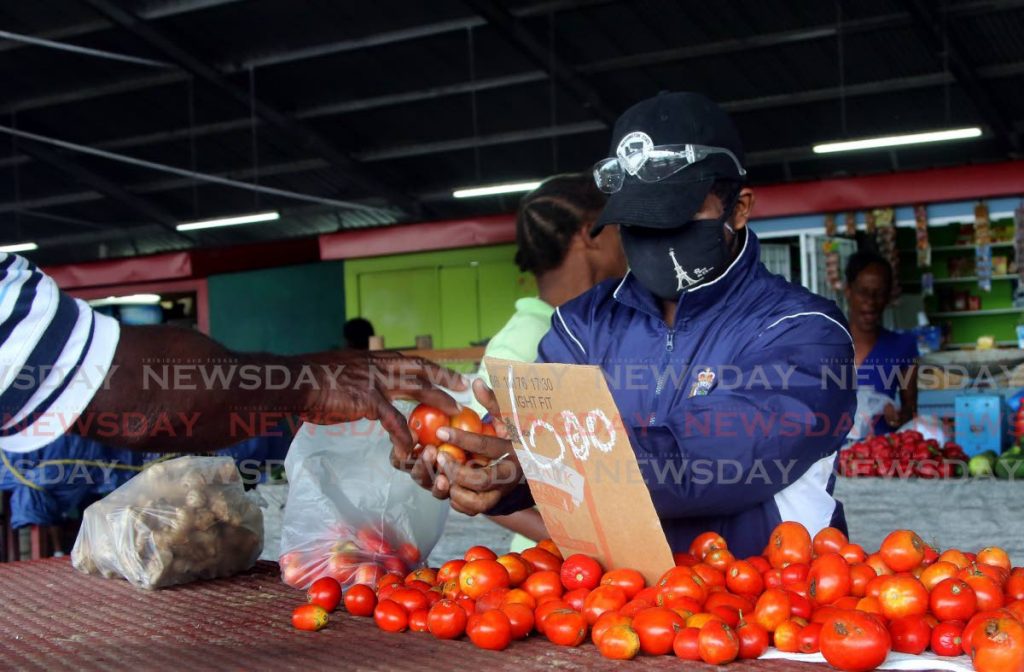Social distancing in the time of covid19

Do not congregate. Separate. Stay home. Don’t go out to exercise. Do not walk up and down your street or apartment hallway unless going out for essentials. Do not go and visit family, especially the elderly.
Until April 15 people have been asked to confine themselves to their homes and only leave for essentials such as food and pharmaceuticals.
Only people who work for essential services, including utilities, medical workers, the protective service, media and food providers are able to leave their homes. Everyone else was asked by the Government to hunker down, work remotely and stay at home.
This is all to help stop the coronavirus, covid19, from spreading. At the time writing, on Wednesday afternoon, the country had 89 known cases and five deaths. One person has recovered and was discharged a week ago.
Those who are taking public transport must practise social distancing. In the past two weeks, buses, taxis and maxi taxis were loading at capacity, but on March 27 drivers were told to carry 50 per cent of their passenger load.
Newsday spoke to the head of the Medical Board, psychiatrist Dr Varma Deyalsingh about social distancing and the ways people could put themselves and others at risk by leaving their home unnecessarily.

He said people must presume that covid19 is out there in public, and they must only go out for essential things.
Coronavirus is primarily transmitted via saliva and mucus droplets when someone sneezes, coughs or talks.
People should not touch their faces, particularly the eyes, nose and mouth, as these are the entry points for the virus. If a person puts their hand on a contaminated area, then touches their face, they risk allowing the germ to enter their system.
Wearing gloves will not stop the coronavirus if you then touch your face.
What is social distancing, self-isolation and quarantine?
Social distancing is simply keeping a safe distance away from another person.
The Ministry of Health recommends at least three to six feet.
“Keeping that safe distance, that personal space between yourself and another person, you would have less chances of the virus spreading to you,” Deyalsingh said.
This includes when one is out trying to buy groceries.
Deyalsingh highly recommends people adopt social distancing at home between family members, especially if you're going out to work.
A person who travelled recently is at high risk of getting the disease as they may have been in contact with the virus in an international transportation hub. They are asked to stay for 14 days in self-isolation and contact the Ministry of Health if signs of illness start to appear.
Deyalsingh referred to the first covid19 patient in the country, who returned to TT from Switzerland.
“He was aware and smart enough, cognisant enough, to isolate himself from the rest of the workforce and the public. So isolation refers to your staying there maintaining yourself – no testing has been done, but you’re just playing it safe.”
A person who may have encountered someone with coronavirus will either be asked to self-isolate or be quarantined for 14 days.
Recently 19,852 people returned to the country before the borders were closed on March 22. They are required to self-isolate for 14 days.
Deyalsingh suggests having a designated space within their homes where they could safely stay away from other people.
“Those individuals, if they find them with a fever or temperature, the Government will put them in some form of quarantine.”
Staying away from the public, Deyalsingh implored, was their social responsibility. He encourages people to think that they could spread the virus and must distance themselves.
“They must think: 'I can give my relatives this in my home. I can give my community this. I can spread this.'”
During a media briefing on March 27, the Health Minister said last weekend was pivotal to monitor coronavirus infections, as symptoms would start showing among those who returned to the country.
If a person has self-isolated for 14 days and they were not in an at-risk population such as those who travelled, the psychiatrist said they could relax.
“If you are locked away for 14 days and nothing has happened, you can now relax, because your home environment is a sort of ecosystem that is relatively safe because you’re not going to let people come in like workers.”
Deyalsingh advised not to let anyone into their house while social distancing. Even family members must practise social distancing from each other if they don’t live in the same household.
“You don’t know which family member at home could have it...The family member who comes in could be the one introducing the germ, and you are so careful within your environment. Families should understand that.”
Decontaminating when you get home
While the Government has asked everyone to stay at home, people must go out to get food or pharmaceutical supplies, or if their job was deemed an essential service, they must go out to work.
When a person goes out for groceries, they should decontaminate themselves and the items they bring home. Harvard Health Publishing says covid19 can survive two to three days on plastics and stainless steel, up to 24 hours on cardboard and four hours on copper.
Remote controls, pizza boxes, plastic wrap and plastic bags can all be carriers of coronavirus. The germs can live on plastic bags from groceries.
“The virus lives in clothes. When you’re coming home, wherever you are leaving any shops or grocery, you wash your hands.”
Stay away from the elderly
While mortality statistics on covid19 continue to change, the elderly are still among those with the highest risk of death, particularly if they have several health conditions.
TT is an ageing society where many households have multiple generations.
For their safety, Deyalsingh suggested the elderly further isolate themselves in their home, moving around only when the rest of the family is not in the same space. He added that homes should be frequently sanitised so that if someone has the coronavirus it will not spread.
“You could be carrying this virus, not knowing that you have it.”
However, social isolation for the elderly is also damaging to their health.
“The elderly people who want to socially isolate, they are more at risk because studies have shown if you are isolated, you have a greater chance of dying. Social isolation is itself a killer. We have to reach out to these people somehow.”
There are elderly people who have family support and those who do not. He wants mental health officers to check up on the elderly to see if they are okay. Some may be anxious over the current events, others lonely and some may need people to go get groceries for them.
He called on the public to check on the elderly remotely be it by phone or social media, so they don’t feel isolated.
“Those people would be suffering inside because they are not going to be having that level of touch. If you have to have connectivity, you still have social media where you can keep in touch.”
If you must hug, practise safe hugging
Social distancing also means avoiding close contact with anyone be it hugs or handshakes. However, humans are social animals and acts such as hugging calms the sympathetic nervous system which helps to alleviate anxiety and other symptoms of stress.
“There are individuals that may need that hug, that warmth, that holding hands just to hold you and look you in your eyes and say things will be okay. Some people need that, some person would want that,” Deyalsingh said.
The communications unit of the Caribbean Public Health Agency (Carpha) advised Newsday that social distancing is for outside of the home. If one does not have symptoms of covid19 nor is being self-quarantined, there is little need to practice social distancing in the home.
If a family is practising social distancing where the same people have not left the home for days, the family members are relatively safe.
Deyalsingh said people need physical comfort, but they should practice it safely too.
“You need that attachment. You need that tactile sensation. That...is what creates good emotional support. Hugs have been shown to increase oxytocin levels in the individuals being hugged and the one who is doing the hugging. So we know it’s the good hormone, it’s the good feeling.”
It is essential for children to experience physical touch as part of their development and healthy attachment styles. However, he warned that health care practitioners should be careful who they interact with and the family members they touch.
“We need the hugs, but if I am working as a nurse, and I come home and I have a little baby, I have to be aware, I may be a carrier. Because if you notice, caregivers in China and Italy were dying.
“A health practitioner should be a little cautious. Decontaminate yourself, put on gloves, put on a face mask and you could still hug up your baby with clean clothes.
"But sneezing, touching your face, touching your mucus membranes and touching your baby is a no-no.”
Be careful
Deyalsingh warned people, particularly those going out in public, to be extra-careful.
“Some people may not recognise the danger…If the danger is far removed and you’re not actually seeing the deaths, you’re just hearing about it, it might not be something that’s real to you.”

Comments
"Social distancing in the time of covid19"